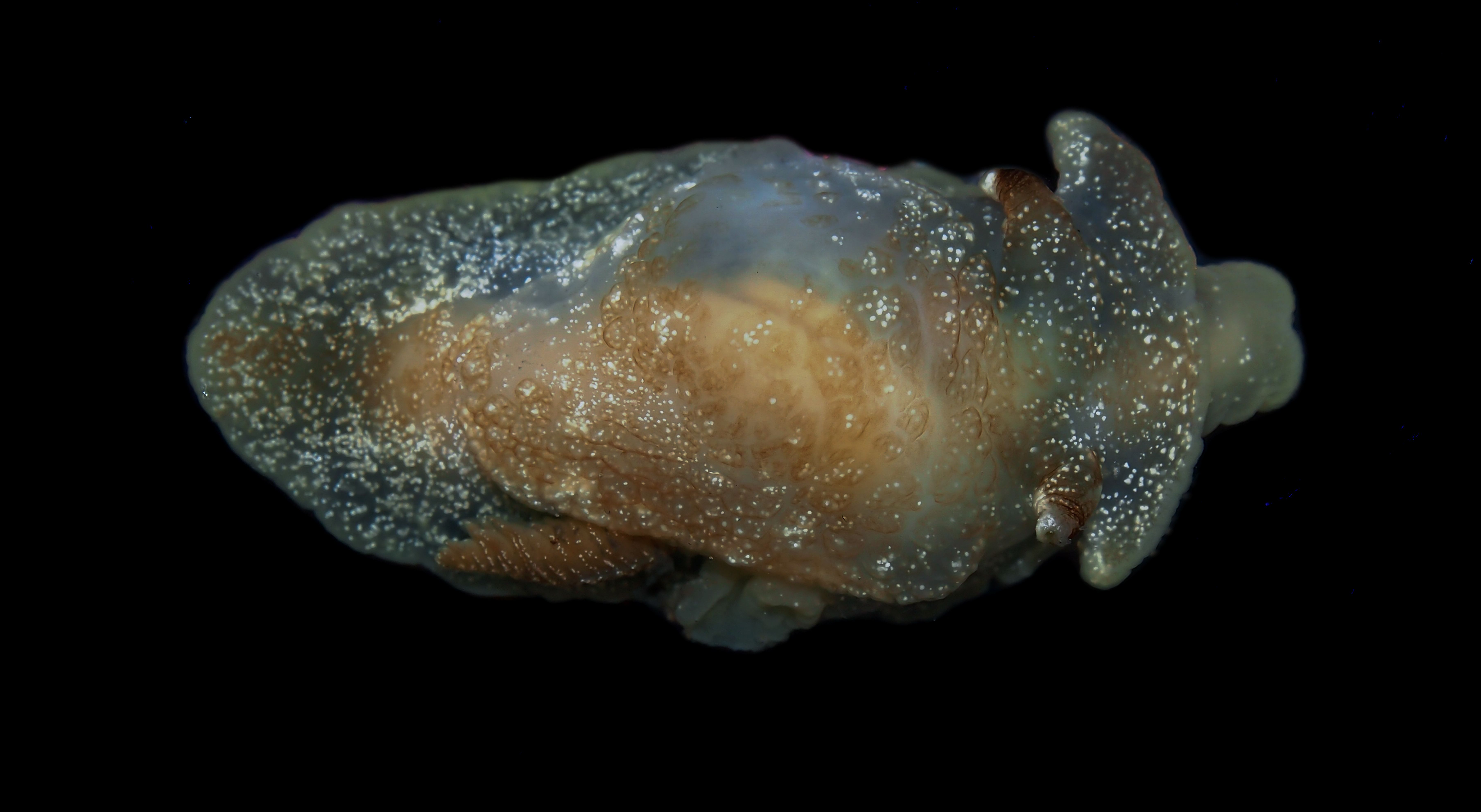Finding a new species can happen in all sorts of different ways from reclassifying species based on new genetic information with a little help from Will Smith, finding them hiding in the trees, or spending months looking closely at museum specimens. Scientists are always learning more about the animal species that surround us. Now a new species of sea slug has been discovered in British waters almost by accident.
Scientists from the UK’s Centre for Environment, Food and Aquaculture Science (Cefas) and the University of Cadiz in Spain collected 14 specimens while doing routine surveys of fisheries off the southwest coast of England and one in the Gulf of Cadiz. Over 100 species of sea slugs are known to live in British waters but this one had something a little bit unusual.
The new species, described as “cream and clay-colored with white specks”, has been named Pleurobranchaea britannica and is around 2-5 centimeters (0.7-1.9 inches) long. Initially, because of the distinctive side gill on the right side of the creature, researchers thought it might be another species of Pleurobranchaea meckeli, which is typically found in Senegal. However, this species has never been seen before in UK waters leading scientists to start to question the true identity of the sample they had collected.
“It is exciting to see that routine fisheries surveys can still lead to such discoveries. It only took a brief inspection of two specimens to be confident that we had stumbled upon a species of Pleurobranchaea. This was thrilling because no other species from this genus had been documented in UK waters, or even this far north,” said Ross Bullimore, a marine ecologist at Cefas and co-author of the paper describing the sea slug, in a statement sent to IFLScience.
Eventually, the specimens were sent to a team in Spain where the researchers looked closely at both the DNA and compared the structures to that of known species. They concluded that the specimen was a brand new species.

This new species increases the number of sea slugs in the Pleurobranchaea genus to three.
Image Courtesy of Ross Bullimore ©
Sea slugs are one of the most brightly colored and diverse groups of animals with some displaying incredible features and unique appearance. They also can take on parts of their prey, either repurposing cells for photosynthesis or becoming toxic by consuming toxic animals.
“When Cefas scientists contacted me and told me that they had collected individuals belonging to the sea slug genus Pleurobranchaea, but whose specific identity was not clear, I was really surprised,” said Dr Juan Lucas Cervera Currado of the University of Cadiz. “Firstly, because species from this genus have never been found in the British Isles, and secondly because the possibility of having found a new species of this genus in European waters was really exciting.”
Pluerobranchea are commonly known as side-gilled sea slugs, their gills situated on the right side of the body, allowing them to extract oxygen from the water. No other groups of sea slugs found in UK waters have this anatomy so the distinct leaf-like – or “canoe paddle” structure as the team describes it – side gill alerted them to the fact they had found something not found in UK waters before.
They suggest it could have a range as far south as Spain and even off the coast of Portugal. The two other species in the genus include Pleurobranchaea meckeli and Pleurobranchaea morosa. The first lives in the Mediterranean Sea and can even be found off Senegal. The second is much rarer and less well-known. However, this is not good news as the researchers suggest that climate change could be making this species move into more northerly waters as the temperatures increase.
The team is thrilled though to have discovered a brand new sea slug species. “There is often an assumption that we know everything there is to know about species found in UK waters, but this just goes to show that there is still so much to learn in our own backyard,” said Bullimore.
The study is published in Zoosystematics and Evolution.
Source Link: Brand New Species Of Delightful Sea Creature Discovered Off The British Coast